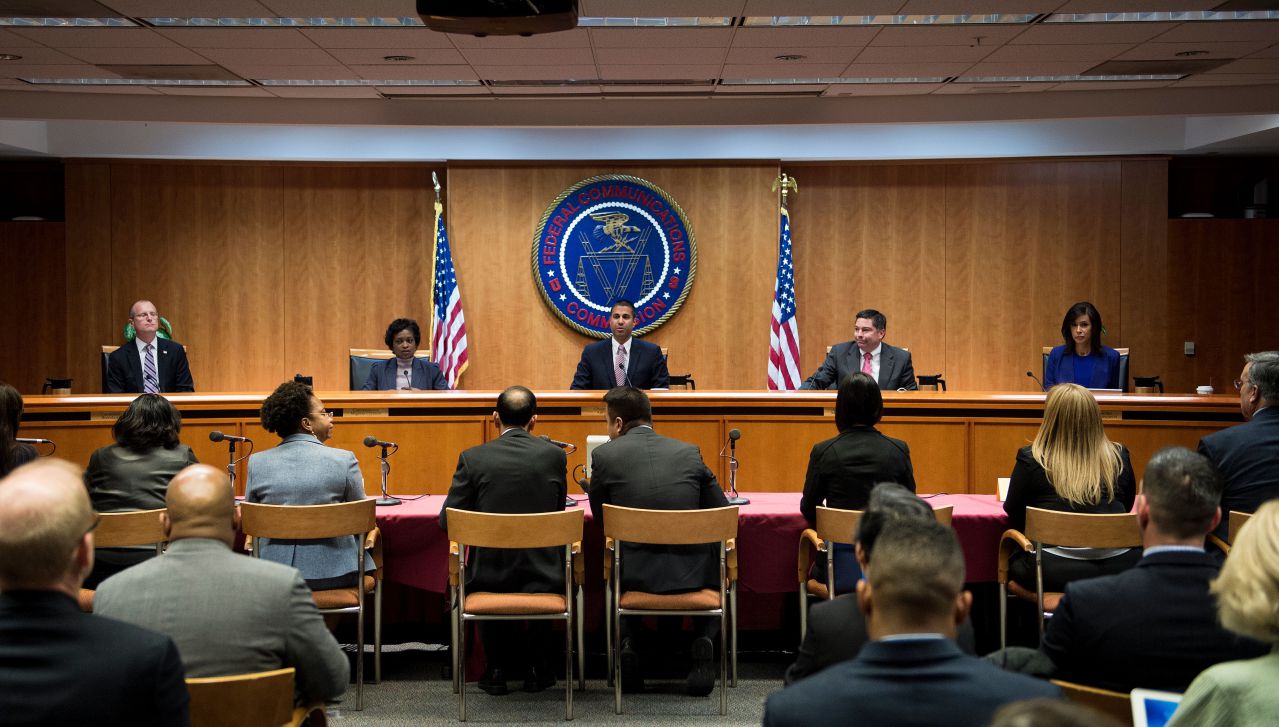Facebook has announced it will prioritise news sources deemed to be more trustworthy on its News Feed. The firm said the social network community would determine which outlets are reliable via the use of user surveys. Founder and chief executive Mark Zuckerberg said news content would soon make up around 4% of what appeared in people’s News Feeds – down from 5% before. The move is the latest attempt by the company to quell the spread of so-called fake news and propaganda on the network. As part of that continuing…
Read MoreYear: 2018
Only one in four trust social media, new survey says
Only one in four Britons trusts social media and users would like to see tighter regulation, according to the annual Edelman Trust Barometer. Its survey found two-thirds of Britons believe platforms such as Facebook and Twitter are not doing enough to prevent illegal and unethical behaviour, including cyber-bullying and extremism. But faith in traditional journalism rose sharply in the last year. Edelman said it was time social media companies sat up and listened. “The public want action on key issues related to online protection, and to see their concerns addressed…
Read MoreBitcoin and Ethereum new hit by massive decline.
Most major digital currencies sold off sharply on Tuesday, but the declines in bitcoin, ethereum and litecoin prices weren’t as bad as much of the rest of the market. Bitcoin was down 17 percent at that time, ethereum was down 19 percent and litecoin was down 19 percent, according to the same site. The declines followed speculation in the market about what regulators in Asia may be planning for digital tokens. On Monday, a report from Bloomberg, citing unnamed sources, said Beijing plans to block domestic access to Chinese and…
Read MoreNew remote access to corporate laptops by hackers
Remember the latest “Spectre” and “Meltdown” vulnerabilities recently found in the micro-chips that are used in almost all computers, tablets and smartphones today? A new security flaw has been found in Intel hardware by Finish company F-Secure. The new vulnerability could enable hackers to access corporate laptops remotely. F-Secure said in a statement that the flaw was an issue within Intel Active Management Technology (AMT), “which is commonly found in most corporate laptops, (and) allows an attacker to take complete control over a user’s device in a matter of seconds,”…
Read MoreChildren at Significant Social Media New Risk
Schools should play a bigger role in preparing children for social media’s emotional demands as they move from primary to secondary school, England’s children’s commissioner says. Anne Longfield said she was worried many pupils at that stage became anxious about their identity and craved likes and comments for validation. Her study said children aged eight to 12 found it hard to manage the impact. The government said it was working with schools on online safety education. The report into the effects of social media on eight to 12-year-olds claimed many…
Read MoreNew Rush to fix serious computer chips flaws
Tech firms are working to fix two major bugs in computer chips that could allow hackers to steal sensitive data. Google researchers said one of the “serious security flaws”, dubbed “Spectre”, was found in chips made by Intel, AMD and ARM. The other, known as “Meltdown” affects Intel-made chips alone.The industry has been aware of the problem for months and hoped to solve it before details were made public. The UK’s National Cyber Security Centre (NCSC) said there was no evidence that the vulnerability had been exploited. According to the…
Read MoreGermany starts enforcing new hate speech law
Germany is set to start enforcing a law that demands social media sites move quickly to remove hate speech, fake news and illegal material. Sites that do not remove “obviously illegal” posts could face fines of up to 50m euro (£44.3m). The law gives the networks 24 hours to act after they have been told about law-breaking material. Social networks and media sites with more than two million members will fall under the law’s provisions. Facebook, Twitter and YouTube will be the law’s main focus but it is also likely…
Read MoreNew Gaming addiction classified as disorder by WHO
Gaming addiction is to be listed as a mental health condition for the first time by the World Health Organisation. Its 11th International Classification of Diseases (ICD) will include the condition “gaming disorder”. The draft document describes it as a pattern of persistent or recurrent gaming behaviour so severe that it takes precedence over other life interests. Some countries had already identified it as a major public health issue. Many, including the UK, have private addiction clinics to “treat” the condition. The last version of the ICD was completed in…
Read MoreSpotify New $1.6 billion lawsuit from Wixen Music Publishing.
Spotify is facing a $1.6 billion lawsuit from Wixen Music Publishing, the publisher that represents artists like Tom Petty, Missy Elliot, Stevie Nicks and Neil Young, The Hollywood Reporter first reported. The suit, filed December 29, alleges copyright infringement, specifically alleging Spotify is using thousands of its songs without a proper license. The lawsuit seeks at least $1.6 billion in damages and injunctive relief. Before Spotify launched in the U.S., the company made deals with major record labels to obtain the appropriate rights to the sound recording copyrights in the…
Read MoreThe FCC is still tweaking its new net neutrality repeal
One may think that from the pomp accompanying the FCC’s vote in December to repeal the 2015 net neutrality rules, that the deed was accomplished. Not so — in fact, the order hasn’t even reached its final form: the Commission is still working on it. But while it may be frustrating, this is business as usual for regulations like this, and concerned advocates should conserve their outrage for when it’s really needed. The “Restoring Internet Freedom” rule voted on last month was based on a final draft circulated several weeks…
Read More








